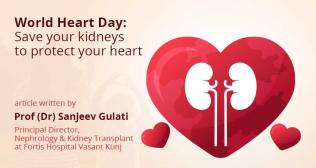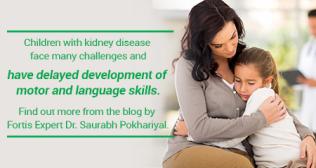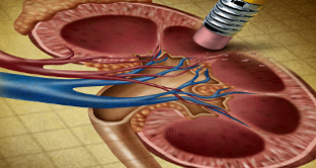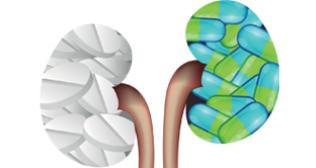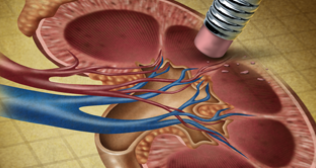
Nephrology
Preventing Chronic Kidney Disease
Preventing Chronic Kidney Disease Dec 21, 2020
 Dr Anil Prasad Bhatt
Dr Anil Prasad BhattDirector - Nephrology
You are more likely to develop kidney disease if you have
* diabetes
* high blood pressure
* heart disease
* a family history of kidney failure
What can I do to keep my kidneys healthy?
You can protect your kidneys by preventing or managing health conditions that cause kidney damage, such as diabetes and high blood pressure. The steps described below may help keep your whole body healthy, including your kidneys.
During your next medical visit, you may want to ask your doctor about your kidney health. Early kidney disease may not have any symptoms, so getting tested may be the only way to know your kidneys are healthy. Your doctor will help decide how often you should be tested.
See a doctor right away if you develop a urinary tract infection (UTI), which can cause kidney damage if left untreated.
Make healthy food choices Choose foods that are healthy for your heart and your entire body: fresh fruits, fresh or frozen vegetables, whole grains, and low-fat or fat-free dairy products. Eat healthy meals, and cut back on salt and added sugars. Aim for less than 2,300 milligrams ( 1/2 Teaspoon ) of sodium each day. Try to have less than 10 percent of your daily calories come from added sugars.
Choose foods that are healthy for your body.
Tips for making healthy food choices
* Cook with a mix of spices instead of salt.
* Choose vegetarian food.
* Serve foods without gravy or added fats.
* Try to choose foods with little or no added sugar.
* Gradually work your way down from whole milk to 2 percent milk until you’re drinking and cooking with fat-free (skim) or low-fat milk and milk products.
* Eat foods made from whole grains—such as whole wheat, brown rice, oats, and whole-grain corn—every day. Use whole-grain bread for toast and sandwiches; substitute brown rice for white rice for home-cooked meals and when dining out.
* Read food labels. Choose foods low in saturated fats, trans fats, cholesterol, salt (sodium), and added sugars.
* Slow down at snack time. Eating a bag of low-fat popcorn takes longer than eating a slice of cake. Peel and eat an orange instead of drinking orange juice.
* Stop Nmakeen, Chutney, Papad, Aachar, Sauce, salty soups.
* Try keeping a written record of what you eat for a week. It can help you see when you tend to overeat or eat foods high in fat or calories.
Research has shown that the diet rich in fruits and vegetables may help you lower your blood pressure. If you have diabetes, high blood pressure, or heart disease, you should create a meal plan with your dietitian that meets your needs.
Make physical activity part of your routine
Be active for 30 minutes or more on most days. If you are not active now, ask your doctor about the types and amounts of physical activity that are right for you.
Aim for a healthy weight
If you are overweight or have obesity, work with your doctor or dietitian to create a realistic weight-loss plan. View more weight control and physical activity resources to help you get and stay motivated.
Get enough sleep
Aim for 7 to 8 hours of sleep each night. If you have trouble in sleeping take help of your doctor.
Stop smoking
If you smoke or use other tobacco products, stop. Ask for help so you don’t have to do it alone.
Limit alcohol intake
Drinking too much alcohol can increase your blood pressure and add extra calories, which can lead to weight gain. If you drink alcohol limit yourself to one drink per day if you are a woman and two drinks per day if you are a man. One drink is:
* 350 ml of beer
* 150 ml of wine
* 45 ml of liquor
Explore stress-reducing activities
Learning how to manage stress and cope with problems can improve emotional and physical health. Physical activity can help reduce stress, as can mind and body practices such as meditation and Yoga.
Manage diabetes, high blood pressure, and heart disease
If you have diabetes, high blood pressure, or heart disease, the best way to protect your kidneys from damage is to
Keep blood glucose numbers close to your goal. Checking your blood glucose, or blood sugar, level is an important way to manage your diabetes. Your health care team may want you to test your blood glucose one or more times a day.
Keep your blood pressure numbers close to your goal. The blood pressure goal for most people with diabetes is below 140/90 mm Hg.
Take all your medicines as prescribed. Talk with your health care provider about certain blood pressure medicines, called ACE inhibitors and ARBs, which may protect your kidneys. The names of these medicines end in –pril (Cardace or Ramipril) or –sartan (Covance or Losartan)
Be careful about the daily use of over-the-counter pain medications.
Regular use of nonsteroidal anti-inflammatory drugs (NSAIDs), such as Brufen, Flexon, Sumo, Voveran and Aceclofenac can damage your kidneys.
Keep your cholesterol levels in the target range to prevent heart attacks and stroke.
There are two kinds of cholesterol in your blood: LDL and HDL. LDL or “bad” cholesterol can build up and clog your blood vessels, which can cause a heart attack or stroke. HDL or “good” cholesterol helps remove the “bad” cholesterol from your blood vessels. A cholesterol test also may measure another type of blood fat called triglycerides.
Ask your doctor questions
Ask your doctor the following key questions about your kidney health during your next medical visit. The sooner you know you have kidney disease, the sooner you can get treatment to help protect your kidneys.
Key questions for your health care provider:
* What is my glomerular filtration rate (GFR)?
* What is my urine albumin result?
* What is my blood pressure?
* What is my blood glucose (for people with diabetes)?
* How often should I get my kidneys checked?
Other important questions:
* What should I do to keep my kidneys healthy?
* Do I need to be taking different medicines?
* Should I be more physically active?
* What kind of physical activity can I do?
* What can I eat?
* Am I at a healthy weight?
* Do I need to talk with a dietitian to get help with meal planning?
* Should I be taking ACE inhibitors or ARBs for my kidneys?
* What happens if I have kidney disease?







